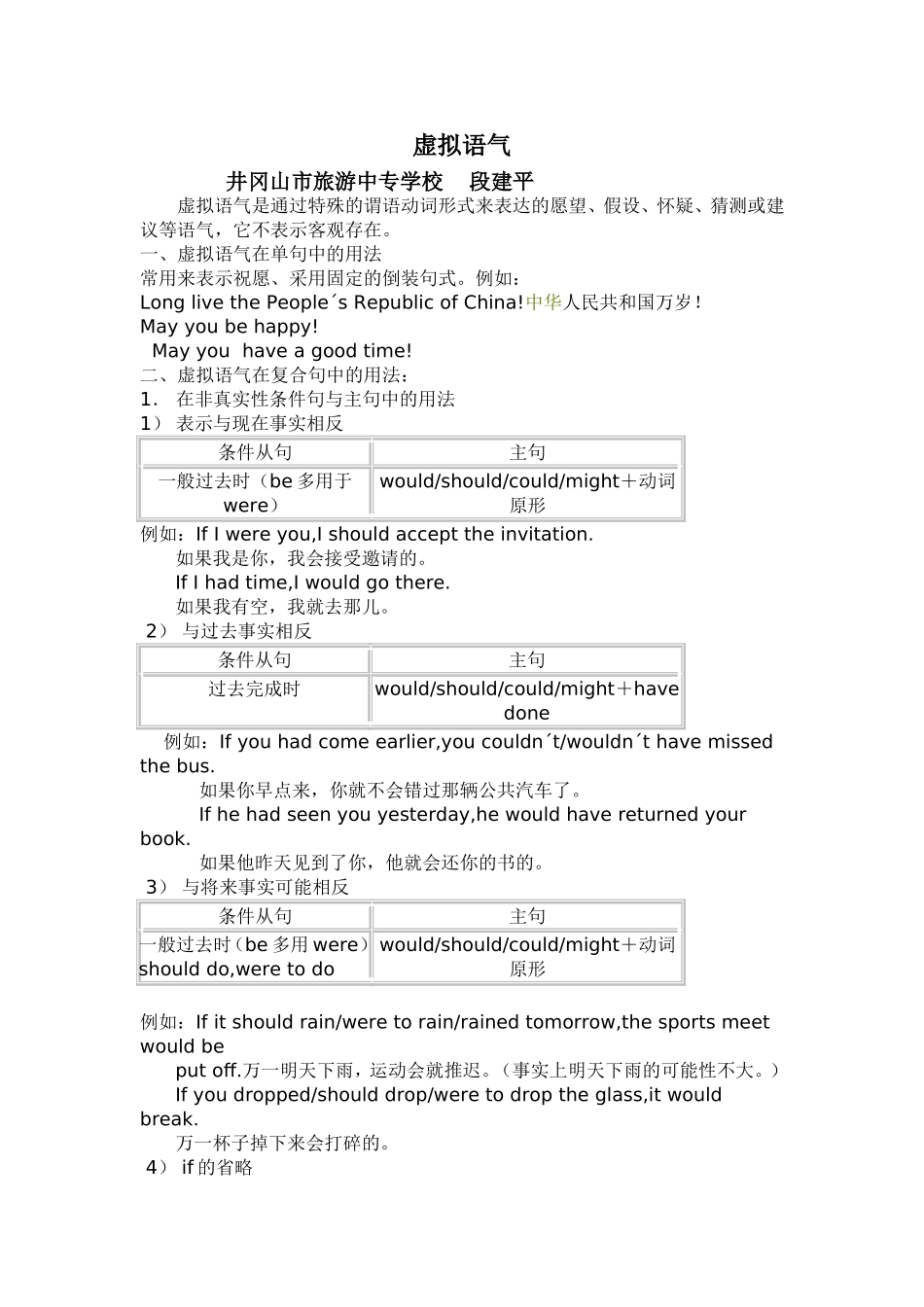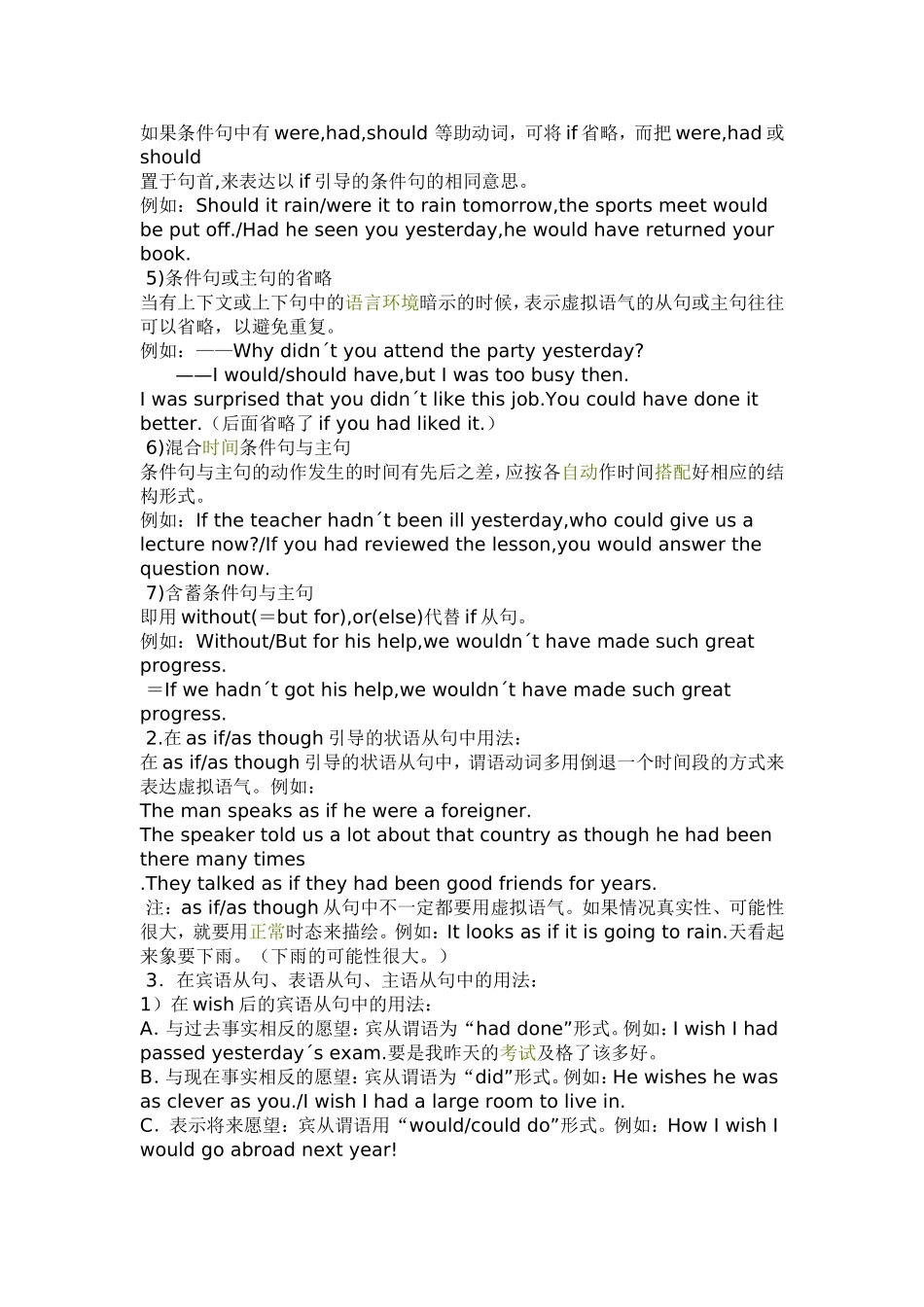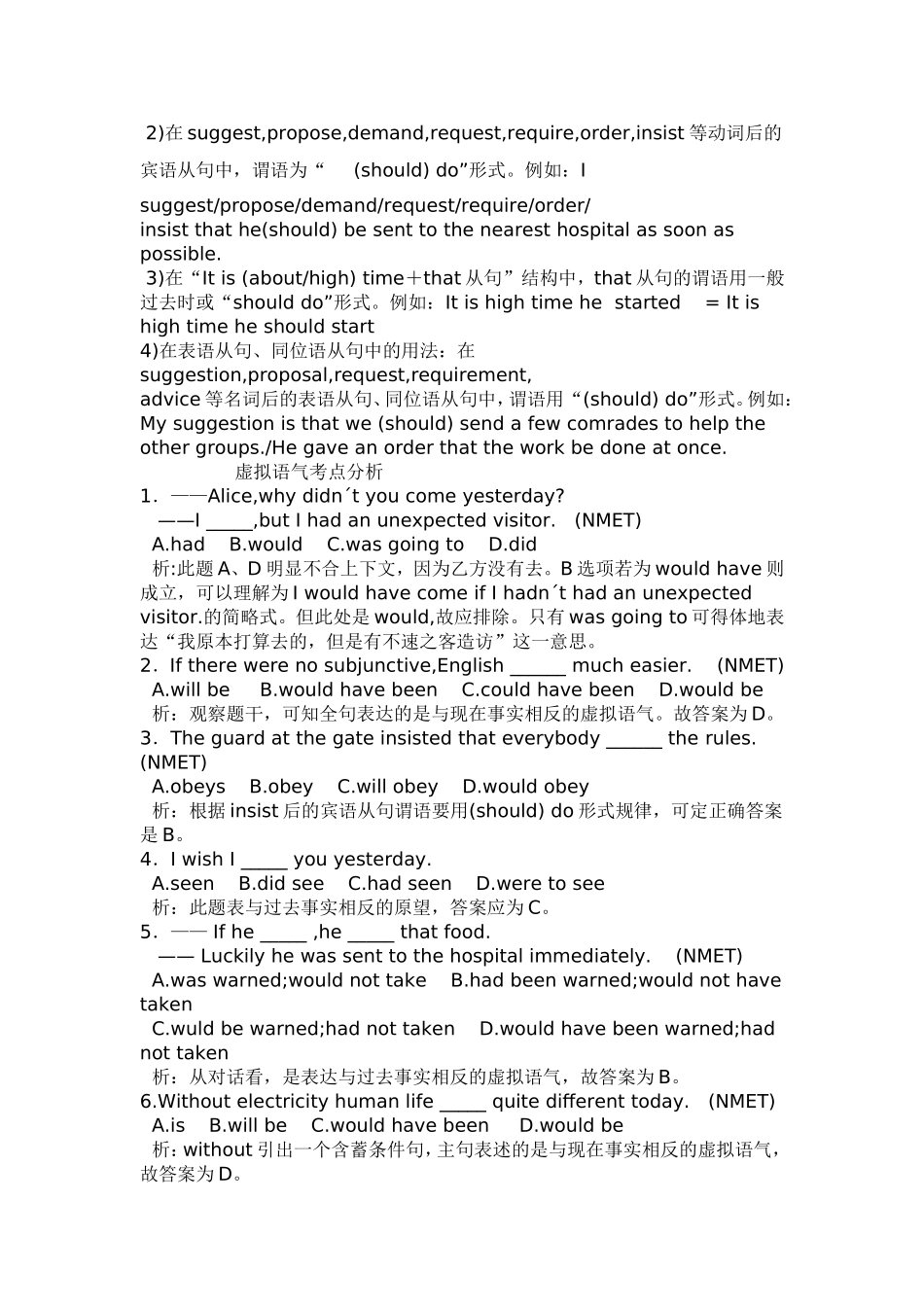虚拟语气井冈山市旅游中专学校 段建平虚拟语气是通过特殊的谓语动词形式来表达的愿望、假设、怀疑、猜测或建议等语气,它不表示客观存在。一、虚拟语气在单句中的用法常用来表示祝愿、采用固定的倒装句式。例如:Long live the People´s Republic of China!中华人民共和国万岁!May you be happy! May you have a good time! 二、虚拟语气在复合句中的用法:1. 在非真实性条件句与主句中的用法1) 表示与现在事实相反条件从句主句一般过去时(be 多用于were)would/should/could/might+动词原形例如:If I were you,I should accept the invitation. 如果我是你,我会接受邀请的。 If I had time,I would go there. 如果我有空,我就去那儿。 2) 与过去事实相反条件从句主句过去完成时would/should/could/might+have done 例如:If you had come earlier,you couldn´t/wouldn´t have missed the bus. 如果你早点来,你就不会错过那辆公共汽车了。 If he had seen you yesterday,he would have returned your book. 如果他昨天见到了你,他就会还你的书的。 3) 与将来事实可能相反条件从句主句一般过去时(be 多用 were)should do,were to dowould/should/could/might+动词原形 例如:If it should rain/were to rain/rained tomorrow,the sports meet would be put off.万一明天下雨,运动会就推迟。(事实上明天下雨的可能性不大。) If you dropped/should drop/were to drop the glass,it would break. 万一杯子掉下来会打碎的。 4) if 的省略如果条件句中有 were,had,should 等助动词,可将 if 省略,而把 were,had 或should置于句首,来表达以 if 引导的条件句的相同意思。例如:Should it rain/were it to rain tomorrow,the sports meet would be put off./Had he seen you yesterday,he would have returned your book. 5)条件句或主句的省略当有上下文或上下句中的语言环境暗示的时候,表示虚拟语气的从句或主句往往可以省略,以避免重复。例如:——Why didn´t you attend the party yesterday? ——I would/should have,but I was too busy then.I was surprised that you didn´t like this job.You could have done it better.(后面省略了 if you had l...


